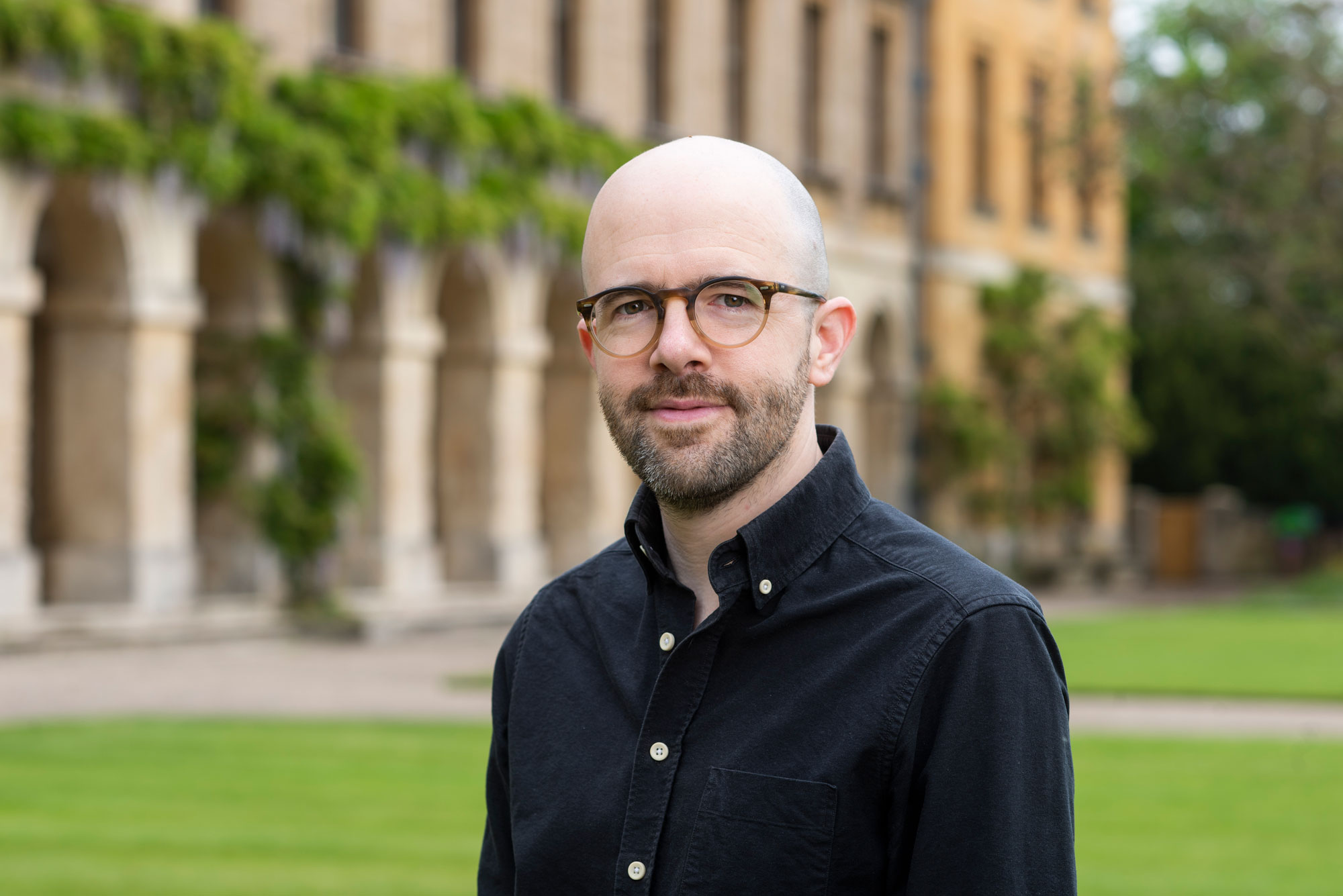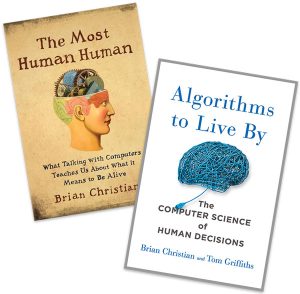Thinking outside the bot Thinking outside the bot Thinking outside the bot
MFA alum Brian Christian explores the tricky dynamics between human behavior and artificial intelligence.
By Hannelore Sudermann | June 2025 issue

His first book about artificial intelligence started as a poem “that grew and grew.” Today, Brian Christian, ’08, is a leading authority on computer-human interaction, with three bestselling books on the subject and wide recognition for his skills blending computer science and philosophy for the common reader.
In high school, Christian took unconventional approaches to his assignments—opting, for instance, to write a song instead of a book report. What began as playful experimentation turned out to be more meaningful. At graduation, he was named the school’s poet laureate. “And I was given the Excellence in English award,” he says. “It was literally the last 20 minutes of high school. It was really a pivotal moment for me”—realizing that his teachers also saw him as an artist.

Brian Christian writes nonfiction books about the human implications of artificial intelligence.
At Brown University, he split his energies between science and the humanities. He just couldn’t decide if he was “a writer who loves science or a scientist who loves writing,” he says. So he double majored in computer science and philosophy.
After moving to Seattle—drawn by both it’s tech and literary scenes—he decided to pursue a master’s in creative writing at the UW. Inspired by a line from one of Gertrude Stein’s essays, “And then there is using everything,” he studied creative nonfiction and poetry under instructors including Heather McHugh, Richard Kenney, David Shields and Linda Bierds, but did not lose touch with his affinity for computer science.
In a class taught by Bierds, Christian started a prose poem exploring how something manufactured by technology can teach us about reality. It quickly evolved into a lyric essay and eventually became part of his master’s thesis. Then it led to the foundation for his first book, “The Most Human Human,” and his quest to be one of the human participants in the Turing Test, competing head-to-head with the most-advanced artificial intelligence to see who or what a panel of scientists would deem more human. Being a poet who writes essays about computers wasn’t an easy sell. Fortunately, a former book editor turned agent got what Christian was doing and—just as he was on the verge of moving back in with his parents—sold the publishing rights at auction to Doubleday.
Christian’s first brush with national fame came in February 2011. Living in Philadelphia and preparing for a tour to promote “The Most Human Human,” he was walking down the street when his cellphone rang. IBM’s Watson had just defeated Ken Jennings on “Jeopardy,” and Charlie Rose was looking for someone to talk about “this AI thing.” With just 30 minutes to get to the studio, Christian ducked into a shop, bought a new shirt and 20 minutes later was sitting in front of a camera answering Rose’s questions over a live feed. Also that month, he wrote The Atlantic’s cover story “Mind vs. Machine.”
His 2016 book, “Algorithms to Live By: The Computer Science of Human Decisions” was a project with Tom Griffiths, a UC Berkeley scientist he first met at Brown and who was “bridging the gap between philosophy and statistics and between computer science and psychology,” says Christian. He describes their friendship as a “lifelong intellectual bromance.” Their book explores how people can benefit from applying computer-science algorithms to their everyday decision-making.
Christian’s third book, “The Alignment Problem: Machine Learning and Human Values,” came out in 2020 and explores the question of a superintelligent AI and the potential technical, ethical and even existential risks it brings. The New York Times featured it as one of the five best books about artificial intelligence, and it was an MIT Technology Review best book of the year. Microsoft CEO Satya Nadella described it as “clear and compelling.”
With three bestsellers under his belt, Christian has made a career of exploring the human implications of computer science. He is currently pursuing a doctorate in experimental psychology at the University of Oxford, where he has “a great opportunity to get deeper into some of the research questions that ‘The Alignment Problem’ left on the table.”